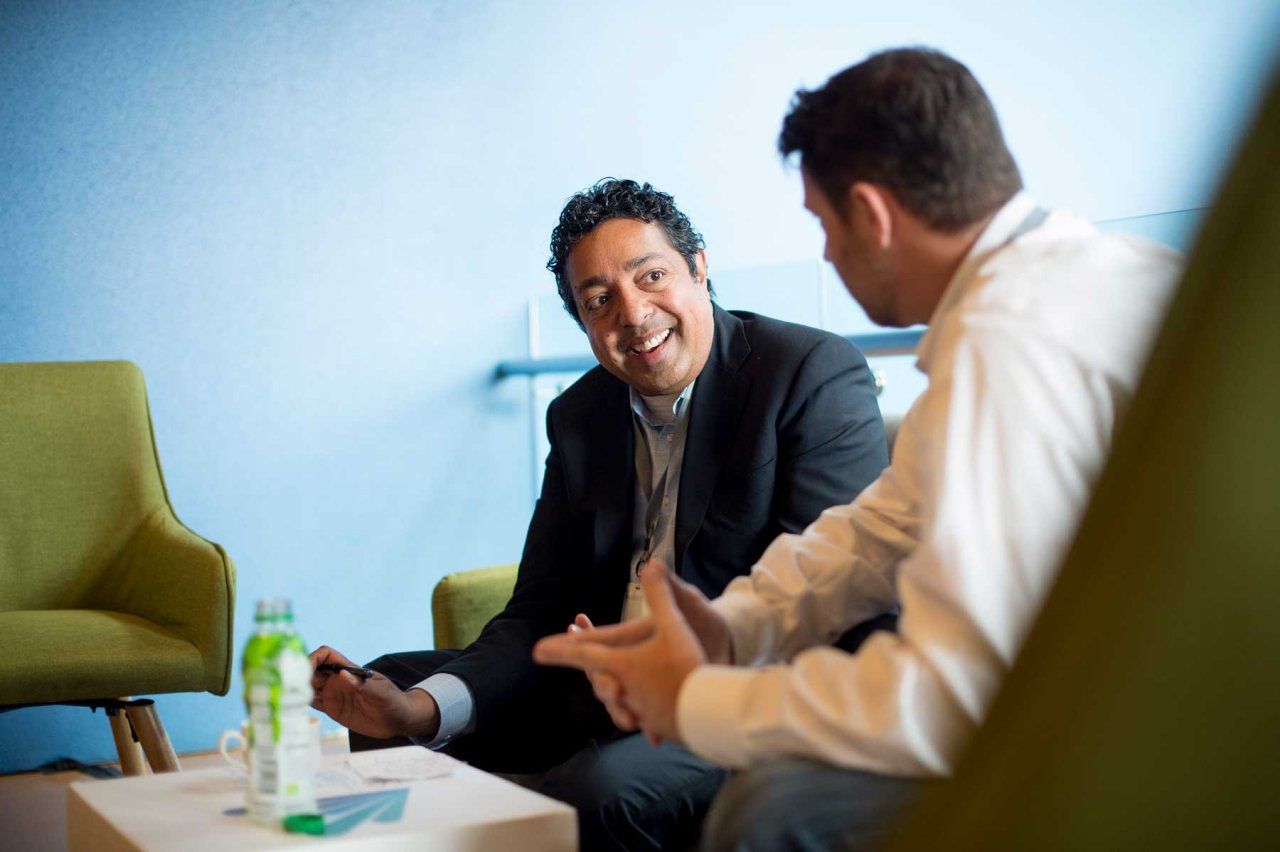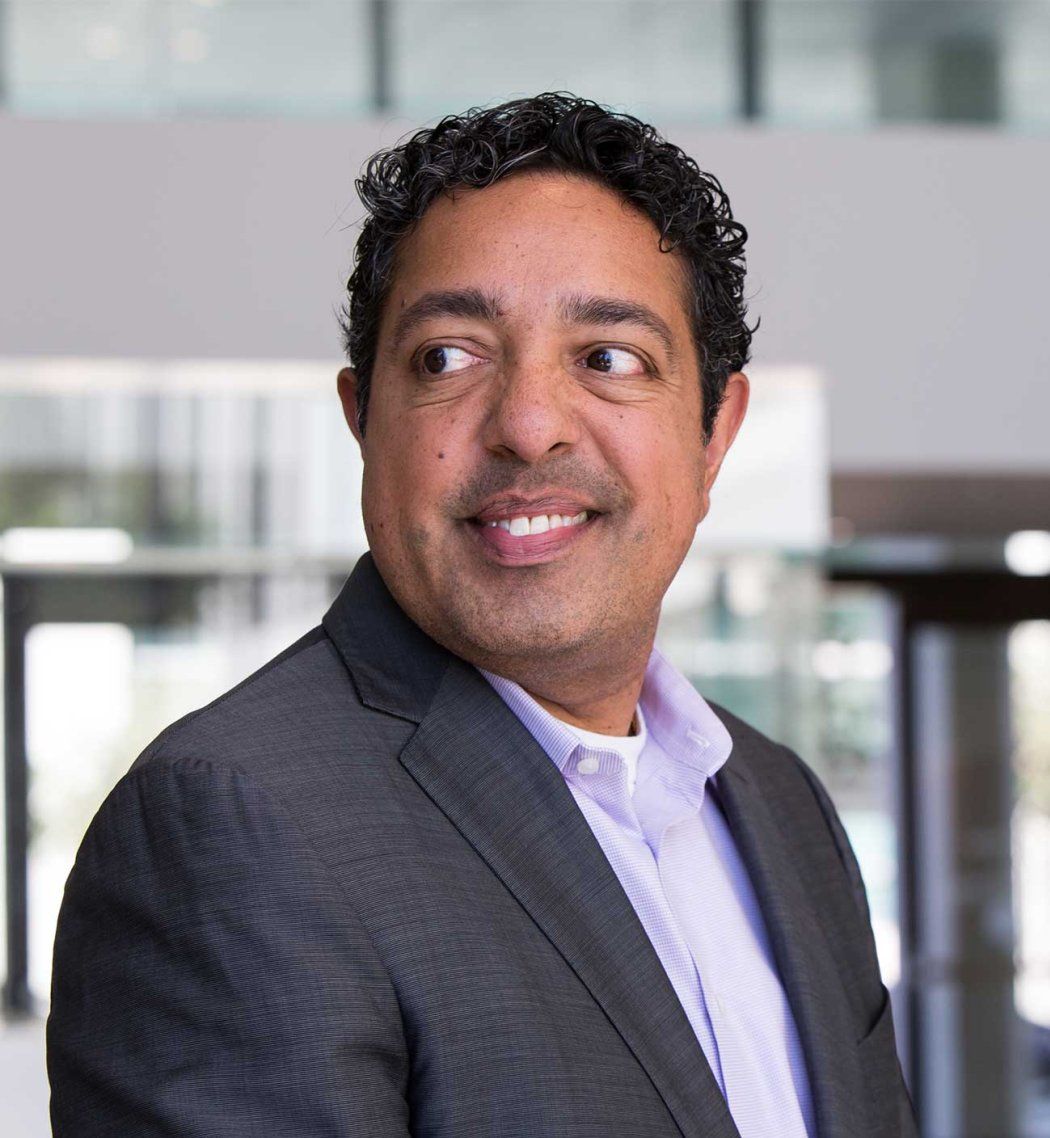Atul Butte, who championed the use of big data in science and health care and inspired a generation of trainees at UC San Francisco and beyond to pursue the fields he pioneered — translational and clinical bioinformatics — died on June 13. He was 55.
His humility, infectious enthusiasm, and sunny optimism made him a charismatic exponent of the power of technology to improve medicine.
Butte played a formative role in bringing more advanced computation to UCSF and the UC system, leveraging the boom in machine learning and artificial intelligence to foster translational and clinical science and improve patient care.
He founded what became the Bakar Computational Health Sciences Institute (BCHSI), which grew to include 90 affiliate faculty members, and served as chief data scientist for UC Health.
Butte was one of the most highly cited researchers in his field, and he won many accolades, including election to the National Academy of Medicine and the American Academy of Arts and Sciences, and recognition by the Obama Administration as an Open Science Champion of Change.
“It’s a rare person who leaves their mark on the university like Atul,” said UCSF Chancellor Sam Hawgood, MBBS. “He brought this incredibly optimistic view of what can be accomplished in the world of big data and computation, and it’s changed the way the entire institution has undertaken the digital transformation that we’re in the midst of.”
Vivid lectures and digital pyrotechnics
He leaves a great legacy that will carry on.”
Butte received his bachelor’s and medical degrees at Brown University, trained in pediatric endocrinology at Children’s Hospital Boston, and received his PhD in health sciences and technology from a joint program at Harvard University and the Massachusetts Institute of Technology.
But he wore his academic laurels lightly.
He reveled in his collaborations with industry, saying it was the best way to get academic discoveries to patients. At the beginning of every talk, he proudly displayed a ‘disclosures’ slide packed with the names and logos of the many companies he was working with.
He earned a large following on social media and mastered the TED Talk. He disarmed audiences with personal stories, like the one about how he used his Fitbit to lose 50 pounds. And he once hired a Hollywood animator to turn millions of data points on outcomes for patients with sepsis into a digital pyrotechnics display.

From translational to clinical informatics
Butte championed open data and data sharing throughout his career and pioneered the field of translational bioinformatics as a young faculty member at Stanford. In 2010, he started ImmPort, an immunology data repository that has spawned more than 1,200 studies.
Early in his career, Butte published a pair of papers in Science Translational Medicine that showed how data could be used to find new uses for drugs that no one had considered.
First, Butte’s team found genetic ‘signatures’ for 100 different diseases based on the genes they activated. Then, they looked at how 164 drugs approved by the Food and Drug Administration could counteract those signatures. The study inspired a company called NuMedii.
Another paper published in Cell demonstrated how to create a molecular profile of a person to see what it revealed about their predisposition to disease. The study launched a company called Personalis that uses the technology to detect early signs that someone’s cancer has come back after treatment.
Butte continued to run a translational bioinformatics lab at UCSF, while launching an entirely new field of inquiry that utilized electronic health records along with other forms of data to improve the lives of patients.
He established the UCSF Information Data Commons, which enabled researchers at UCSF to make use of de-identified clinical health records, as well as the Center for Real World Evidence, to promote research into diseases, drugs, and the quality of care in collaboration with industry.
Expansion across the UC
He also oversaw the development of the UC Data Warehouse, which does the same thing across UC’s 10 campuses and six medical centers.
The data has enabled scientists to better understand disease from the clinical perspective, build predictive models, and carry out head-to-head comparisons of how well different drugs work on a scale that had been difficult to do before.
A recent paper from the Butte lab found that the new generation of GLP-1 drugs like Ozempic were less likely to cause cardiovascular and kidney complications and more effective than another class of drugs when given in combination with the most commonly prescribed diabetes drug Metformin.
Butte’s group also looked at how generative AI models like ChatGPT perform in hospital settings. Given an easy choice between deciding which of two patients in the emergency department (ED) were more acutely unwell, it performed slightly better than doctors. But when asked to make more complex decisions, like how to treat those patients, the model fell short, admitting too many patients and overprescribing x-rays and antibiotics.
‘Very high throughput’
His untimely death after a two-and-a-half-year battle with cancer occasioned tributes from colleagues across the country and around the world, who spoke of his generous and buoyant spirit and his seemingly endless capacity for work.
He had a unique ability to elevate people around him, making them feel good about themselves and the work that they did, which in turn inspired them to grow.”
His mentor at Harvard, Isaac Kohane, MD, PhD, recalled interviewing Butte years ago when he was an aspiring fellow. Kohane suggested several projects Butte might pursue.
“I cautioned that he should pick one so as not to be spread too thin,” Kohane wrote. “He looked at me with his big smile and said, ‘I am very high throughput. It takes a lot more to overwhelm me.’
“At the time, I thought that might be a little hubristic. I was wrong. Atul was just one of the most effective and productive individuals I have ever met. He understood his capabilities and was determined that he should be able to make as much of a real impact upon medical science and healthcare as possible.”
Butte went on to become a notable mentor himself, nurturing students at all levels and doing everything he could to level the playing field.
“He taught us how to ask questions, how to think big, how to mentor and bring collaborative teams together. He taught us the importance of communication and telling a story,” said Marina Sirota, PhD, a professor of pediatrics who is the acting director of BCHSI.
A fierce advocate for others’ success
“I have had the good fortune to work with him for the majority of my career, but there are others whom he inspired by a single talk or conversation,” Sirota said. “He was very supportive of getting students excited about science and had numerous high school interns in his lab throughout the years. He was a fierce advocate for women in science. He had a unique ability to elevate people around him, making them feel good about themselves and the work that they did, which in turn inspired them to grow.”
Butte’s wife, Tarangini (Gini) Deshpande, PhD, a cancer biologist and entrepreneur, recalled how often he would regale her with stories of his mentees’ success — a habit he extended to his family.
“He lived vicariously through me and all the crazy entrepreneurial things that I did,” she said. “He genuinely loved seeing people succeed. He took such pleasure in his team members, his colleagues, his trainees going on to do great things.”
She recalled his elation at publishing a paper on Fitbit data with their child, Syzygy Butte, who was then in high school. “He would just so proudly show off that publication, way more than any of his own papers.”
Years earlier, at Deshpande’s and Butte’s first date — a coffee at Starbucks in New Jersey that turned into a four-hour conversation about molecular biology — he offered to write a script to help her piece together genetic sequences, a painstaking task she had been doing by hand.
She was as overwhelmed by his warmth and caring as much as his intellect.
“People who know me were astounded that five seconds after I met him, I knew I was going to marry him,” Deshpande said. “The fact that he was a pediatrician was just so heartwarming — someone who was trained in computer science and also fixed boo boos on little kids. I knew immediately that he was an extremely rare individual.”
A legacy that will carry on
Keith Yamamoto, PhD, who helped to launch precision medicine in 2011 with an influential report, said Butte had no doubts that even without a computer science department, UCSF could evolve into a 21st Century hub of computational health.
“Atul said, ‘Of course you can do this,’” Yamamoto recalled. “Atul was just this unquenchable ball of enthusiasm and wisdom. The standard he put down and maintained, the direction he provided to all of us will endure. He leaves a great legacy that will carry on.”
A fund has been set up in Butte’s memory for research into cancer. More information is available here.

